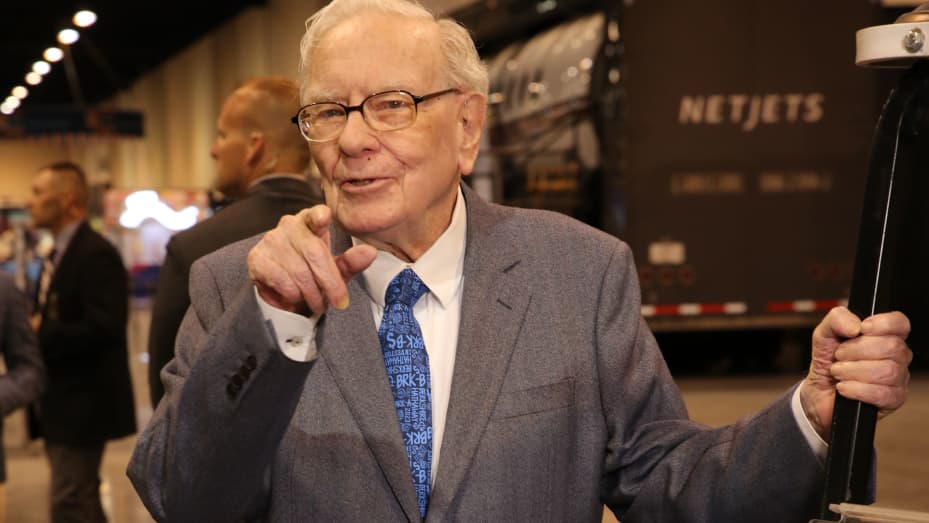
According to the world’s most famous investor, the “incredible period” for the U.S. economy has been coming to an end in recent months. And even his own company, Berkshire Hathaway, isn’t immune.
“The majority of our businesses will report lower earnings this year than last year,” Buffett cautioned at Berkshire’s annual meeting on Saturday.
That’s a somewhat surprising statement from a man who has famously been ultra-bullish on the U.S. economy.
But persistently high inflation, higher interest rates and the ongoing banking crisis have all made Buffett much more concerned about investment gains in the year ahead. His partner, Charlie Munger, echoed this sentiment. “Get used to making less,” he said.
The duo’s pessimism about the economy was also reflected in the company’s investment portfolio.
Berkshire Hathaway was a net seller of equities in the first quarter of 2023, pocketing $10.4 billion in stock sales after deducting purchases. The company’s cash hoard expanded from $128.6 billion at the end of last year to roughly $130.6 billion.
Investors should probably heed the Oracle of Omaha’s warning, but that doesn’t mean completely retreating from the market is the right strategy.
Instead, recession-resistant assets and international stocks could diversify a portfolio enough to withstand those downward forces.
Portfolio shockproofing
Some service sectors are relatively detached from the rest of the economy. Usually, these businesses are backed by a trove of hard, recession-resistant assets that retain their value through inflationary waves.
Caretrust REIT (CTRE) is a good example. The company owns and operates healthcare properties across the country. With over 21,795 hospital beds spread across 23 states and 204 properties, this real estate investment trust could serve as a loose proxy for America’s private healthcare industry.
The stock offers a 5.7% dividend yield and might be an ideal anchor for a portfolio during a recession.
International stocks
According to a recent Bloomberg survey of economists, the odds of a US recession in 2023 are as high as 65%. The risk is also high in other developed markets such as Britain, France, New Zealand and Canada.
But developing markets are far less vulnerable to a recession. In fact, that same survey suggests India’s odds of a recession is 0%.
Read more: This janitor in Vermont built an $8M fortune without anyone around him knowing. Here are the 2 simple techniques that made Ronald Read rich — and can do the same for you
Put simply, investors could safeguard their wealth by investing in foreign stocks. India’s largest private bank, HDFC Bank, is listed on the New York Stock Exchange under the ticker HDB. The stock has delivered a total return of greater than 4,300% since it was listed in 2001 and held up better than most American banks during the 2008 financial crisis.
India isn’t the only option. American investors can bet on Chinese, Singaporean and Indonesian stocks via ETFs or American Depositary Receipts.
Cash
With Berkshire boasting a cash hoard of $130 billion at the end of Q1, it seems that Buffett’s favorite asset right now is US treasury bills. The Oracle significantly boosted his treasury and cash equivalent holdings during the quarter.
That could be a savvy move for retail investors as well — as the interest rate on savings accounts rises.
You might even want to get creative with your cash holdings: Apple’s new high-yield savings account offers a juicy 4.15% annual percentage yield. The company claims that rate is ten times higher than the national average. In fact, the yield is greater than the dividend yield on the S&P 500 or a five-year U.S. treasury bond.
There’s no other way to say it: cash is king in 2023.





























